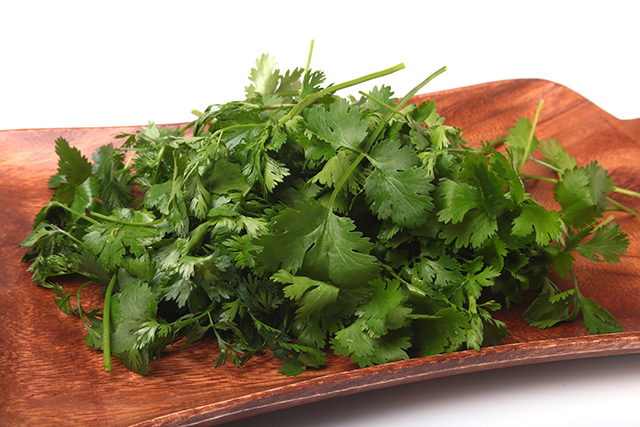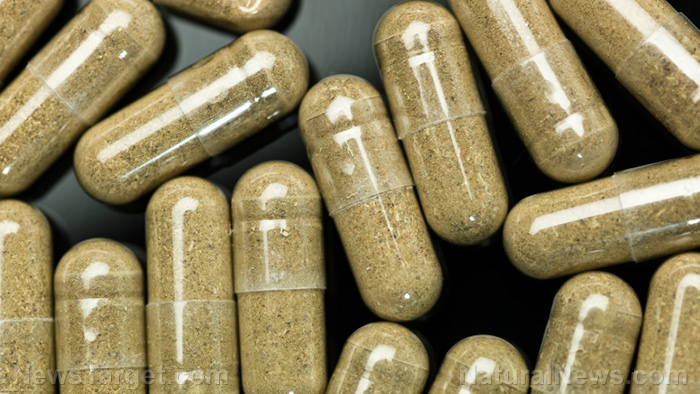
Coriander oil is known to be toxic to various strains of pathogenic bacteria. One study, published in the Journal of Medical Microbiology, investigated the bactericidal properties of coriander oil against invasive MRSA (methicillin-resistant S. aureus), which infect 80,000 people globally and kill over 11,000 people each year.
Researchers at the University of Beira Interior studied the effects of coriander oil on 12 disease-causing bacteria using flow cytometry and found that it effectively inhibited bacterial growth, most notably that of MRSA and E. coli. In fact, all tested strains showed reduced growth, and most were killed, by solutions containing 1.6 percent coriander oil or less. The findings of the study showed that coriander oil performed better on Gram-negative bacteria such as E. coli and salmonella.
The authors discovered that coriander oil works by damaging the membrane around the bacterial cell. This hinders the cell's vital functions including respiration, which leads to cell death.
Moreover, the research team found that linalool, a terpenoid that gives coriander its distinct scent, is the main constituent of coriander oil's antibacterial activity. However, they also found that interactions between the other components of coriander oil made it a more potent bactericidal substance.
Lead researcher Dr. Fernanda Domingues noted that using coriander oil in foods could help prevent bacterial contamination, and consequently avoid food-borne illnesses.
Other studies have investigated the effects of coriander in other forms. One study published in the International Journal of Food Nutrition and Safety focused on the inhibitory effect of water extract of coriander on E. coli and Bacillus subtilis.
Another study published in Critical Reviews in Food Science and Nutrition showed the antibacterial properties of coriander seed oil against both gram-positive and gram-negative bacteria – along with some yeasts and fungi.
Other research on coriander’s bactericidal qualities has used other forms, such as freeze-dried powder.
More on coriander
Coriander (Coriandrum sativum L.), also known as cilantro and Chinese parsley, is a herb widely used in Mediterranean, Asian, Indian and Mexican cuisines, lending its spicy flavor to dishes like chutneys, pickles, sauces, and salads. Its essential oil is widely used, and it can also be a food additive.
Coriander oil is produced from the seeds. It possesses strong antioxidant and anti-inflammatory qualities and has been noted for its numerous health benefits, including pain relief, easing cramps, relieving nausea, aiding digestion, and treating fungal infections. (Related: Natural remedies for lead poisoning: Cilantro, also known as coriander, naturally protects the liver and lowers lead concentration.)
Coriander has been a staple in traditional medicine for centuries. The seeds have even been used as a relaxant, exhibiting anxiety-easing and mood-elevating properties. The diluted essential oil has been used to treat topical skin infections.
Key facts about MRSA
MRSA is a form of bacterial infection. As its name suggests, it is resistant to numerous antibiotics, such as methicillin. Staphylococcus aureus is commonly found inside the nose and on human skin.
Staph bacteria are one of the most common causes of skin infections, and around one in three people carry staph in their nose, although usually without any illness.
On the other hand, two in 100 people carry MRSA, and most cases of invasive MRSA infections are contracted with healthcare settings. MRSA infections result in mild to life-threatening conditions, such as:
- Endocarditis (heart valve infection)
- Osteomyelitis (bone infection)
- Pneumonia (lung infection)
- Urinary tract infection (bladder infection)
- Septicemia (blood poisoning)
- Septic bursitis (small fluid-filled sacs under the skin)
Learn more about the antibacterial properties of coriander at FoodScience.news.
Sources include:
Please contact us for more information.























